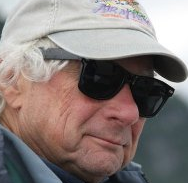The Russian Ad Campaign Was Too Good to Be A Russian Ad Campaign
The answer to this question is obvious, isn’t it? The Russians had a lot of help from people who actually do know U.S. politics very well, and for whom American English IS the every day language.
For more than 30 years I was actively engaged in developing strategies and media and managing political campaigns. For many of those years political communication choices consisted of three or four TV networks, a few daily newspapers and radio stations, direct mail, and however many door-to-door volunteers the campaign could attract. It was a much simpler time.
Today the communications choices are virtually unlimited. YouTube alone has half a million separate channels that reach users on broad issues, such as the health care debate, and on topics as narrow as tatting, a technique for making knotted lace. Search “tatting” in YouTube and 36,000 results come back. Have your candidate post a 60 second YouTube video of him or her tatting and you’re likely to win the tatting vote. How do you know which voters are into tatting? They’re the ones who search for tatting news.
That’s just an extreme example of how granular campaign communications can be these days. With enough time, money and people you could literally custom design campaigns for individual voters on many web sites, and not just social media.
The front lines of campaign strategy and communications are complex, research-based, and dynamic, changing as the technology and learned new techniques change. Political professionals at the top of their game struggle to keep up with the design and execution of today’s political campaigns.
So we’re expected to believe that the Russians, working thousands of miles way, with little experience with our campaign process, figured it out well enough to influence the result of the 2016 election? No way.
In addition to the complexity of the communication puzzle, overlay the uniquely diverse U.S. culture. Multiple ethnic and religious backgrounds, educational and income variables, geographic dissimilarities. I live in Washington, D.C. where the Washington Post and local TV are focused, not just on D.C. news, but on adjacent Maryland and Virginia as well. Because I follow local news I’m aware of local debates on where power lines go, whether a new lane is added to an already busy highway, water treatment problems, cultural wars over what might be taught about evolution or sex. Lots of issues common to our extended community.
Wherever we live in the U.S. there are local factors that influence our outlook. Yes, your vote might be determined by your party affiliation or “top line” issues, such as where you might come out on continuing to send troops to Afghanistan. But in elections for president, fully 20 to 30 percent of the total vote can be determined by attitudes developed around local issues, peer group factors and personal contacts. That was particularly the case in 2016, when the voting public was not excited about either major party choice for president.
As I scrolled through the ads Facebook and Twitter officials showed Congress, those paid for by Russian front groups, I saw ads exquisitely designed to appeal to local issue preferences and personal anxieties. After all, that’s why so much advertising now goes into these platforms, precisely so that savvy advertisers can directly reach their targeted audience. Pretty smart of those Russians to have figured this all out, including all the individual voter metrics. Too smart to be believable.
Finally, there’s the matter of language. Think of your friends and acquaintances for whom English is a second language, even those who speak it very well. It’s not the same as you or me or anyone for whom American English is native, is it? Articles and prepositions sometimes are missing. Uncommon words may be a struggle for them to recall or pronounce. Colloquial expression is often a challenge.
Now, look at all of these ads at http://bit.ly/2z55v7G and see if you can find any mistakes in spelling, grammar, proper punctuation, abbreviation, or any language errors at all. And don’t overlook the fact that many are tied to art and photos that required extensive research to perfectly fit the message.
Oh, one more thing. We trace the origin of the English language back to the Latin of Rome. Russian is based on Cyrillic, with origins in Greek. The saying, “It’s all Greek to me,” underscores the difficulty for those of us in the English-speaking world to bridge the gap. Learning Russian begins with learning an entirely new alphabet. Many word meanings are foreign to our own, even in translation. It works the other way, too, for Russians learning English.
I’m sure there are plenty of Russians capable of perfectly handling both languages. But the Russian advertising campaign was so extensive it required a literary army. Remember, in addition to countless perfect linguists, to pull this off the Russians also would have required a parallel army of those expert in nuanced cultural differences. A third group would have needed to rival American research and media professionals in their understanding of political campaign communications.
Going back to where I began this column, disbelief that the Russian advertising campaign actually was a Russian advertising campaign, I can think of only two other explanations for its brilliance and its success.
One, that independent of both presidential campaigns, the Russians hired American experts needed to help pull this off. If that were the case, why haven’t any of those who participated come forward to say so?
The other possibility is that the Russians had access to the database, the targeting information, the advertising skill and likely a lot of the talent available to the Trump campaign.
Anyone have a better theory?
Mr. Mueller?
(Joe Rothstein can be contacted at joe@einnews.com. His new political thriller, “The Latina President….and The Conspiracy to Destroy Her” is available on Amazon).




